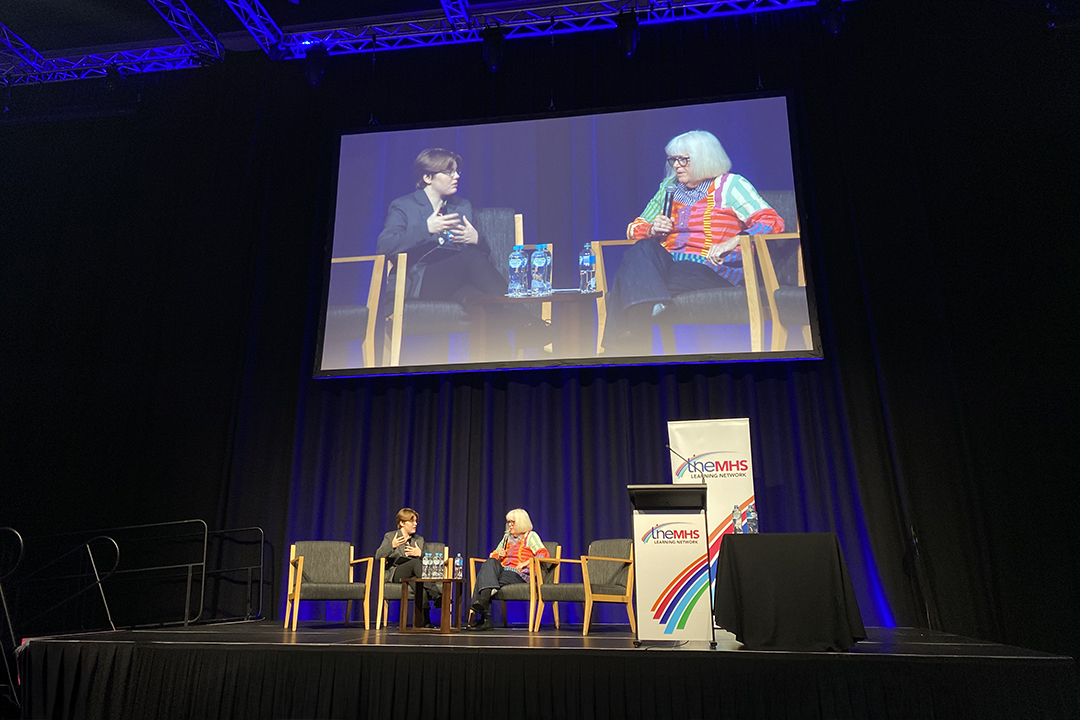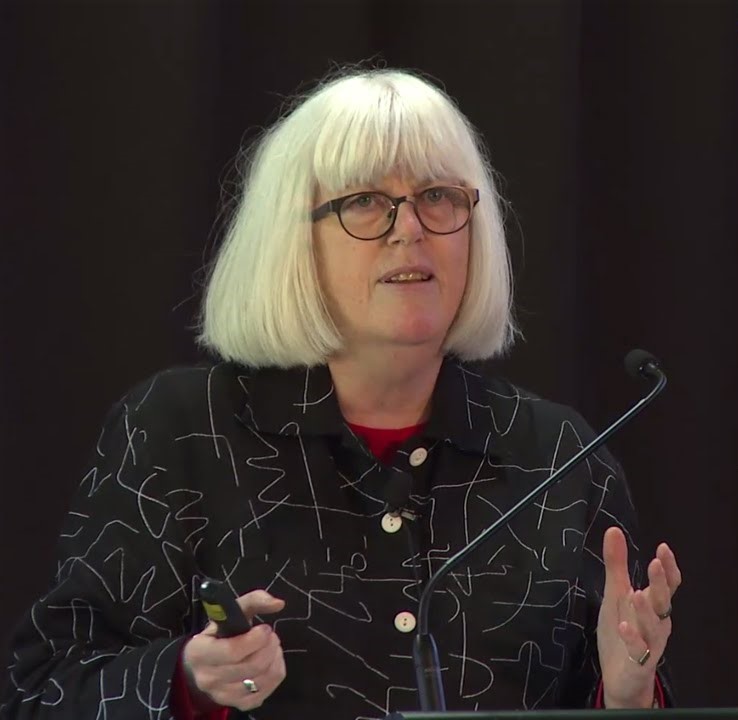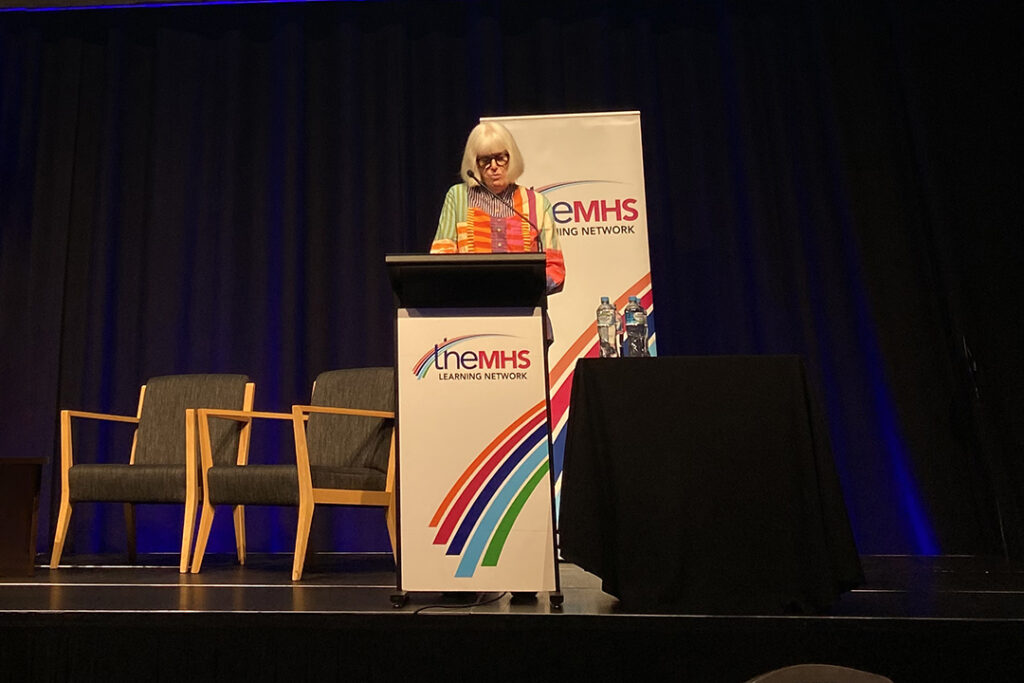Mary O’Hagan, Director of Lived Experience at Wellways, was not preaching to the choir during her keynote speech ‘Lived Experience: Have We Lost Our Why?’ at TheMHS, Australia and New Zealand’s largest mental health sector conference. Mary is internationally recognised as a pioneering advocate for mental health reform and has dedicated her career to embedding the voices of those with lived experience into mental health systems worldwide.
Out of sight, Out of Mind
With 40 years of transformational leadership in the field, Mary delivered her thoughts about the direction of the lived experience movement to those in leadership who may have veered off course and unbeknownst to them, become part of the vast power structures that excluded us,” she said. Mary is not ‘the pot calling the kettle black’ and openly acknowledges that she is part of this structure and is learning from her own shortcomings.
The keynote began with a reflection of Mary’s own harrowing mental health journey, marked by family tragedy and the painful stories of friends mistreated by the mental health system. It’s these people, and their modern-day iterations, that Mary has far from forgotten. Her underlying message is to stay true to the people experiencing severe mental distress who are still largely out of sight, and at risk of being left behind. Those who continue to be marginalised, are living below the poverty line and whose human rights are being violated, right now, as we speak.

They are us. They are our ‘why’
“When I look at myself and Lived Experience advocates and leaders around me, I see far more energy and attention going into the lived experience workforce and leadership, into abstract discourses and defensive positioning than I see directly advocating for the lives of our peers experiencing trauma, injustice, thwarted potential, and early death. They are us. They are where many of us have been and where some of us remain. Many are worse off than we ever were or ever will be. They are our ‘why’,” Mary said.
This sentiment was bolstered with alarming statistics about Australians experiencing severe distress. For example, 85 percent are on welfare pensions and unemployed. They are at risk of dying up to 25 years younger (excluding suicide) and are 20 times more likely to die by suicide. This includes them being less likely to have children and keep them, and more likely to be under compulsory treatment than in 1985, the year Mary’s career in mental health reform began.
Mary also highlighted that families, supporters and kin, who often lack support, also experience negative life and health impacts, and she made special mention of children who have parents with mental distress.
We’ve put together some key takeaways from Mary’s poignant and thought-provoking talk, which she intends to create an ongoing and open dialogue on how the lived experience movement can keep their eyes on the ‘why’.
Mary’s checklist on how to stay focused on the ‘why’
Give as much attention to the most marginalised people with lived experience as we do to the workforce and leadership. The latter tends to take precedence because they are closest to where we are now and contain the easiest wins.
We must be inclusive of different experiences, identities and intersections, while focusing on the people who are most impacted and marginalised. Participants and families are a broad intersectional group with overlapping needs and interests.
We need to hold ourselves and each other to account with a higher standard – where we are kind, generous and inclusive to each other, where we make amends when we fall below the standard, and where we share an expectation that we will all restrain our inner demons from attacking our peers, especially when we are holding the megaphone.
Advocacy is most effective when we don’t slip into the victim – persecutor dynamic but instead stand in our own power and focus our efforts for the people who are currently much more powerless than we are.
The most effective advocacy in the long-term usually happens when advocates and decision-makers build relationships, earn trust, speak robustly, listen deeply, and are curious about each other’s world. These relationships and the credibility we derive from them are our currency to gain influence and contribute to change.
“When we lose sight of our ultimate ‘why’ we get lost in abstractions, systems, logistics, power plays and self-interest,” Mary concluded. “Of course, we need to be in the room where these discussions at the system and service level take place, but let’s always bring our ‘why’ in neon lights with us.”
Learn more about Mary and her role at Wellways:

